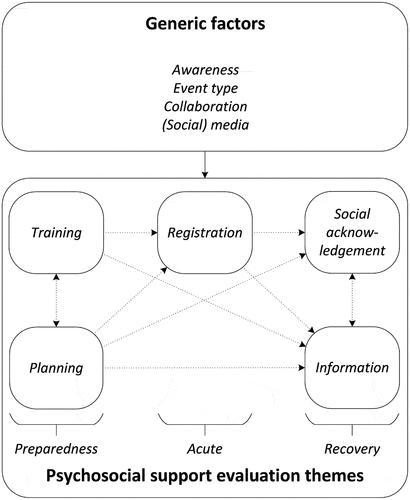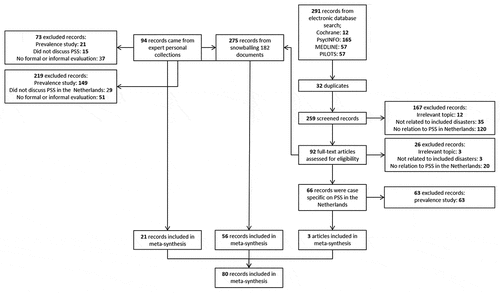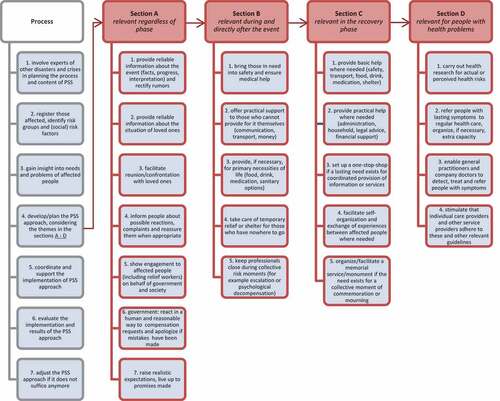Figures & data
Table 1. List of included Dutch disasters.
Table 2. List of included Dutch disasters and documents.
Figure 2. Psychosocial support (PSS) evaluation themes and explanatory factors identified. The PSS delivery problems described in the included works centre on five distinct evaluation themes. In the preparedness phase, shortcomings are linked to training and planning. A recurring issue in the acute phase is the registration of affected individuals, which is linked to the immediate planning of services. In the recovery phase, evaluators repeatedly describe problems connected to information and social acknowledgement. The one-way arrows represent causal relations across stages, implied in the material studied. The two-way arrows represent associations where the direction is difficult to ascertain. The line of reasoning reflected in the documents points at sequential interdependencies across the crisis life cycle. Deficiencies in training and planning in the preparedness phase influence registration and planning in the acute phase. Registration and planning in the acute phase influence information and social acknowledgement. All PSS evaluation themes are influenced by four generic explanatory factors: awareness, event type, collaboration and (social) media.

Coding tree.
Included documents per disaster.


